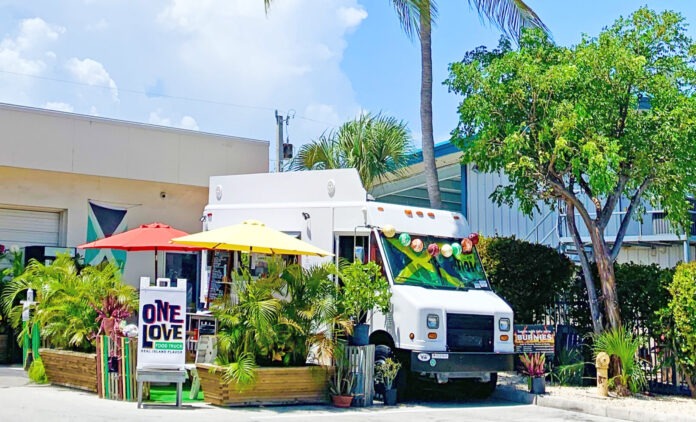
Unincorporated Monroe County will move forward with a law of its own to govern the operation of food trucks, according to a unanimous vote of the county commission on July 16.
The decision came amid heavy opposition from residents and business owners to a proposed county code change that would have required the trucks to either move or meet a hefty list of requirements if they planned to stay on the same property for more than six months.
As currently written, Monroe County’s code does not specifically govern the operation of food trucks. Rather, it lays out requirements for operating a restaurant on a property based on whether the restaurant is in use for more or less than six months, each requiring a different level of permit review and requirements, senior planning director Devin Tolpin told the commission.
The sample language presented during the July 16 meeting would have prohibited properties from receiving more than one special building permit for a specific temporary use – meaning that trucks staying in one place for more than six months would be required to meet all standards of the land development code.
In January, the Board of County Commissioners directed county staff to address the lapse in code language after restaurant owners in areas like Stock Island were frustrated by competition with more than a dozen trucks that didn’t share the expenses of their site-built competitors.
Constantly-moving mobile food vendors, such as ice cream trucks, are licensed separately by the state. Certain other Keys municipalities, including Marathon, have adopted regulations specific to fixed-location food trucks – but outlawing them entirely is preempted by the state’s 2020 Occupational Freedom and Opportunity Act.
Requirements for temporary permits, Tolpin said, are less stringent than their permanent counterparts, allowing trucks to skirt items like traffic studies, trash receptacles and required numbers of parking spaces, among other items.
“Practically, to have to comply with everything I read (for permanent uses), is the equivalent of prohibiting (food trucks),” said commissioner David Rice.
“People have spent their life savings, and that food truck represents everything they have in the world,” said former county building department employee Larry Chase. “I’ve read those regulations, and I know those regulations. There would be no food trucks in Monroe County if they had to go through that process. It’s too expensive, they can’t afford it, and it’s just a shame, because I think they’re a viable part of the community now.”
“We are not just a place to grab a bite to eat – we are a local family that pays taxes and cares deeply about our community,” said Lyndsay Peterson, the owner of Key Largo’s Seaside Eatery. “In reference to the business impact statement released on this, ‘neither residents nor lawfully-permitted businesses should be affected by this ordinance’ couldn’t be further from the truth. We stand to gain nothing and lose absolutely everything.”
At press time, an anonymously-authored Change.org petition titled “Support the Vitality of Food Trucks in Monroe County” had garnered 1,949 signatures. A second, started by Cudjoe Pizza owner Jeff Neary, earned 671 signatures.
But both Tolpin and the commission were quick to clarify that their intention wasn’t to ban food trucks.
“We are not shutting down your business. We are not taking ludicrous actions,” said commissioner Holly Raschein. “What we’re planning to do is exactly what your industry could be craving, so that you have some kind of clarity, you have consistency.”
All four commissioners said they preferred to adopt food truck-specific amendments to county land development regulations. That change, Tolpin and County Attorney Bob Shillinger said, will involve a public input process and hearings that would likely take about a year.






















